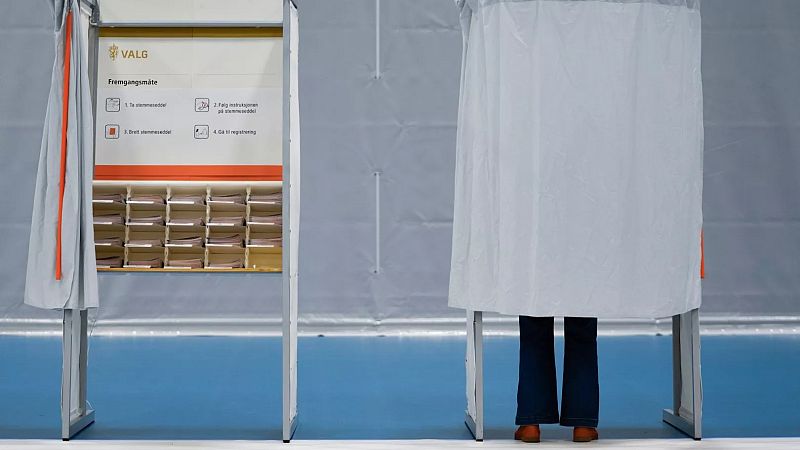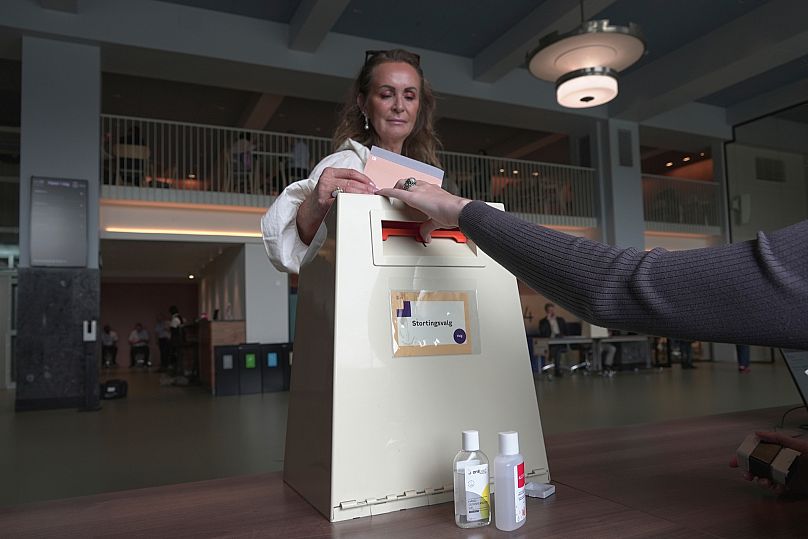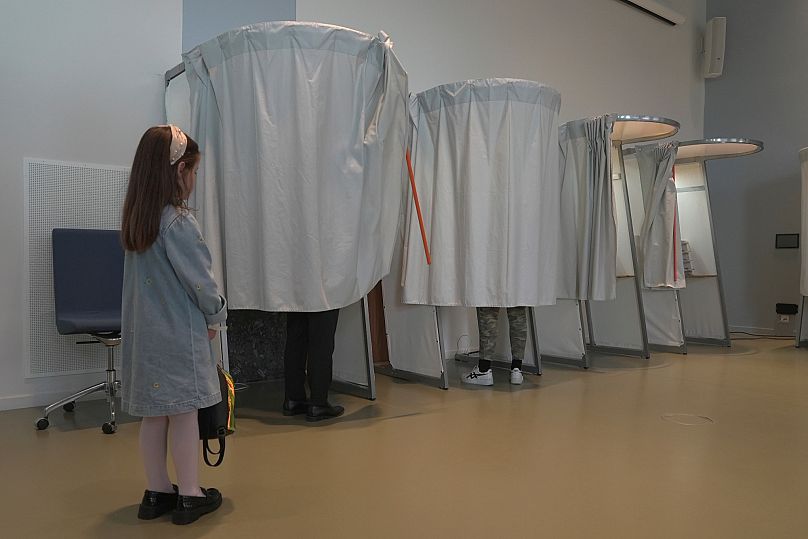Norway votes in closely fought election with wealth tax in focus

Norwegians headed to the polls on Monday with a 19th-century wealth tax at the centre of an election pitting the left-wing Labour-led government against the centre-right.
Polling showed that there is little to separate Prime Minister Jonas Gahr Støre's bloc from its opponents.
Since 1892, the now wealthy Scandinavian country has applied a levy of up to 1.1% on assets and shares worth more than 1.76 million kroner (€150,101), though there are various reductions and discounts.
The Conservatives now want it reduced and the Progress Party of Sylvi Listhaug would like to see it scrapped entirely, while Labour argues that removing it would cost the country 34 billion kroner (€2.81 billion) per year.
Listhaug's party is predicted to outperform the Conservatives, who are led by former Prime Minister Erna Solberg, a senior figure in the last centre-right government from 2013 to 2021.
The Progress Party has been boosted by an energetic social media campaign, driven by influencers who have inspired younger voters against the wealth tax.
About 4.3 million people in the Scandinavian country are eligible to vote on Monday for the new 169-member parliament, or Storting.
Official results are expected to be announced on Tuesday and they are likely to be followed by weeks of negotiations to build a coalition and agree on cabinet positions before King Harald can swear in the new government.
The result isn't likely to have major implications for Norway's foreign policy.
The country is a founding member of NATO and a strong supporter of Ukraine's defence against Russia, with which it has a border in the Arctic north.
It isn't a member of the European Union but has close economic ties with the 27-nation bloc.
Norway is one of the richest countries in the world. It has a generous welfare state, sits on billions of barrels of oil and gas, and has one of the world's largest sovereign wealth funds, worth around 20 trillion kroner (€1.71 trillion).
Gross domestic product per person is the sixth-highest in the world, one place above the US, according to the International Monetary Fund.
It is also one of the world’s most egalitarian countries, sharing its wealth much more evenly than many others.
Today



